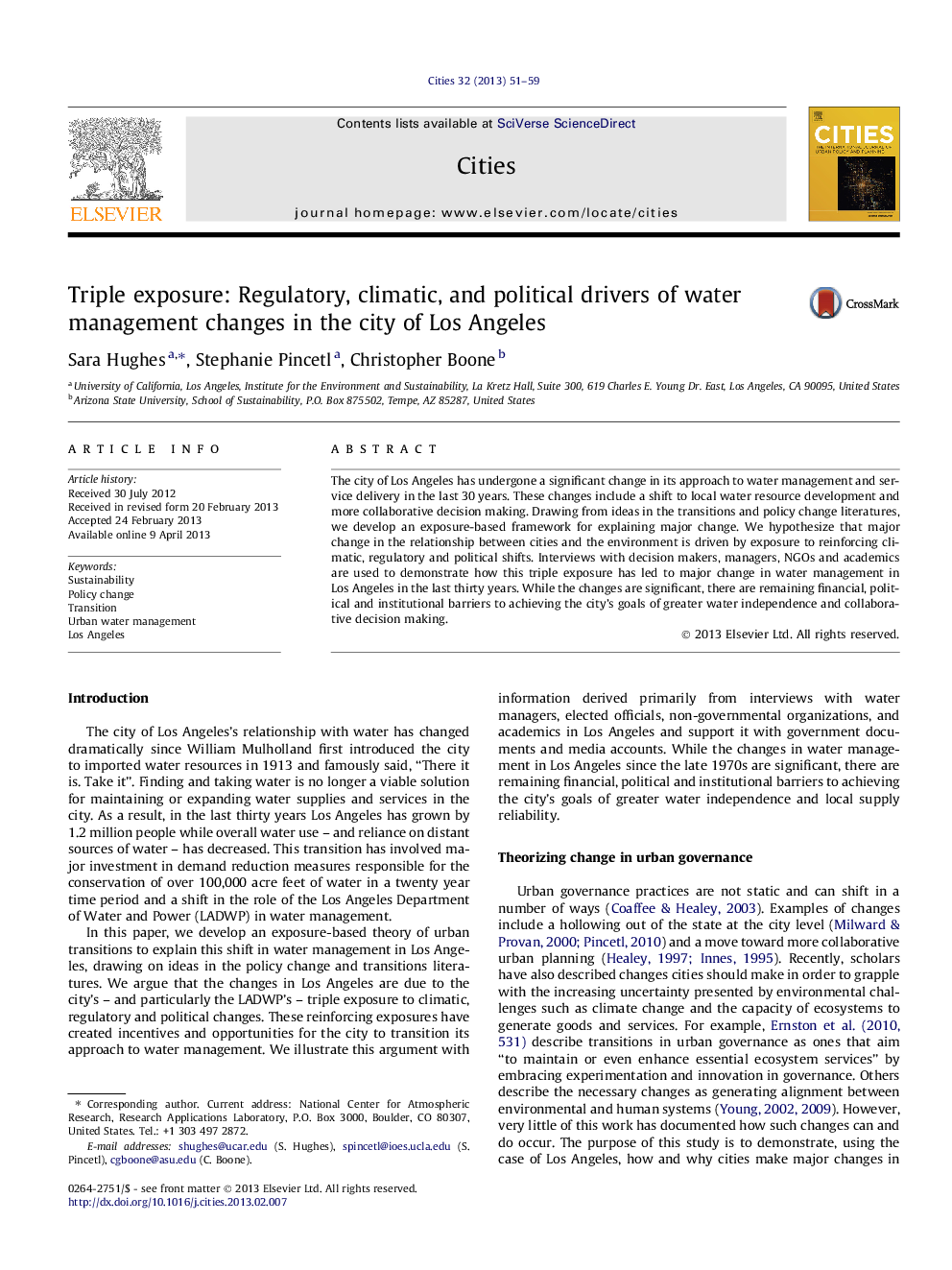| Article ID | Journal | Published Year | Pages | File Type |
|---|---|---|---|---|
| 1008413 | Cities | 2013 | 9 Pages |
The city of Los Angeles has undergone a significant change in its approach to water management and service delivery in the last 30 years. These changes include a shift to local water resource development and more collaborative decision making. Drawing from ideas in the transitions and policy change literatures, we develop an exposure-based framework for explaining major change. We hypothesize that major change in the relationship between cities and the environment is driven by exposure to reinforcing climatic, regulatory and political shifts. Interviews with decision makers, managers, NGOs and academics are used to demonstrate how this triple exposure has led to major change in water management in Los Angeles in the last thirty years. While the changes are significant, there are remaining financial, political and institutional barriers to achieving the city’s goals of greater water independence and collaborative decision making.
► Exposure to climatic, political, and regulatory shifts causes major urban change. ► Water management in Los Angeles has changed significantly in the last thirty years. ► Exposure to reinforcing shifts caused more local and collaborative water management. ► Despite major change, financial, political and institutional barriers remain.
